- Home
- Sarah Woodbury
Masters of Time Page 25
Masters of Time Read online
Page 25
“You are no help at all.” Rupert made a shooing motion with his hands. “Run along and be the stroppy teenager you’re so good at.”
Christopher saluted, again with a grin, and hastened back to the arena where William and Humphrey de Bohun were having an animated conversation about fighting techniques while David was talking to King Philip. Christopher hesitated before approaching either group. He was definitely interested in fighting techniques but Bohun’s points looked more like criticism of his son than an actual discussion. David was Christopher’s cousin so it would be easy to walk right up and start talking, but he’d been warned that Philip was arrogant and wanted to be treated like a king all the time. Christopher must have made some kind of motion, however, because David glanced over at him, signaled that he should come closer, and introduced him to Philip.
Trying to remember all he’d been taught about protocol, Christopher bowed to the French king.
Philip studied the pair of them and spoke very slowly, apparently aware of the limitations of Christopher’s French. For now, he understood a lot more than he spoke.
“God truly favors you, David.”
“I was lucky,” David said.
“Nobody believes that anymore, not even you.” Now Philip openly looked Christopher up and down. “And what about you? How does it feel to be heralded as the hero of Westminster?”
“Uh …” Christopher had no idea what to say, and probably couldn’t have figured out how to say it in French even if he knew.
David laughed. “He saved you a trip across the Channel. I would have had to call you to testify against Clare.”
Philip still had his eye on Christopher. “So you’re one to watch too, are you? If David is the return of King Arthur, who does that make you?”
Christopher looked blank, and as Philip turned away in response to a question from one of his underlings, David leaned in and said, “Who do you think? Gawain? Geraint?”
Christopher played along. “They were way too good at sword fighting compared to me.”
“Hey.” David put a hand on Christopher’s shoulder and shook him a little. “You’re doing great. Just ask Darren or Peter—or even Callum—when you see them next. These things take time.” He eyed Christopher assessingly and then said gently, “No, I think Sir Galahad is the one for you.”
Then he patted Christopher’s shoulder one more time and walked to where Philip was waiting for him in the entrance to the arena. As Christopher followed him, he remembered something David had talked to him about last Christmas but which he hadn’t understood until now: back in Avalon, Christopher was just a kid whose mom didn’t want him to while away the days playing computer games. Here, he was the hero of Westminster, and his cousin, who happened to be the King of England, had compared him to Sir Galahad.
At home, Christopher had been casting around for a way to make a difference in the world. Being a cop had seemed way better and more immediate than going to school for another four years. His dad, on the other hand, claimed making a difference was easy: all Christopher had to try to do was be of service to other people. He was right, but it felt like there was a big difference between slinging hamburgers at the diner with a smile as a service to humanity and returning the King of England’s son to him.
Or maybe not. There was nothing like grilling a quality hamburger to make a lot of people happy in a short amount of time. Still, acting as David’s squire was a good start.
Maybe this medieval gig was going to turn out okay after all.
The End
________________
I’m so glad you’ve continued this journey to medieval Wales with me! The next book in the After Cilmeri series, Outpost in Time, is now available for preorder!
Outpost in Time
March 1294. Ireland is at a crossroads. The different factions—Irish, Danish, and English—are tearing the country apart with their constant warfare. Hoping to hammer out a treaty, David calls the Irish Parliament into session. Unfortunately, some lords are far more interested in fighting than talking, and it isn’t long before the conference goes awry. With the future of Ireland at stake, David finds himself caught up in a far-reaching conspiracy that puts not only his only life on the line, but his family’s as well.
Outpost in Time is the eleventh novel in the After Cilmeri series and is available wherever books are sold.
To sign up to be notified whenever I have a new release, please see the sidebar on my web page:
http://www.sarahwoodbury.com/
You can also connect with me on Facebook:
https://www.facebook.com/sarahwoodburybooks
Read on for the first chapter of The Last Pendragon, the first novella in The Last Pendragon Saga:
Rhiann knows that demons walk the night. She has been taught to fear them. But from the moment Cade is dragged before her father's throne, beaten and having lost all of his men to her father's treachery, he stirs something inside her that she has never felt before. When Cade is revealed to be not only Arthur's heir but touched by the sidhe, Rhiann must choose between the life she left behind and the one before her--and how much she is willing to risk to follow her heart.
The Last Pendragon is the first novella (30,000 words) in The Last Pendragon Saga. (The Last Pendragon Saga was originally published as two volumes: The Last Pendragon and The Pendragon's Quest.)
Sample: The Last Pendragon
Chapter One
Aberffraw, North Wales,
Kingdom of Gwynedd
655 AD
Rhiann
The smell of smoke and sweat filled the hall, mingling with the overlay of roast pig and boiled vegetables. More soldiers than usual sat at the long tables, here to celebrate their victory. The mood was subdued, however, not the wild jubilation that sometimes accompanied triumph and caused Rhiann’s father to lock her in her room in case he couldn’t control the men.
Today, the drinking had begun in earnest the moment the men had returned from the fight and settled into a steady rhythm Rhiann had never quite seen before. Here and there, a hand clenched a cross hung around the neck or an amulet against the powers of darkness, that should her father see, might mean death for that soldier. For a man to ask the gods for protection instead of the Christ meant he was less afraid of the King of Gwynedd than someone, or perhaps something, else. Rhiann had been afraid of her father her whole life and couldn’t imagine fearing another more, not even the demons that were said to walk the night, hungering for men’s souls.
Perspiration trickled down the back of Rhiann’s dress, made of the finest blue wool that her father had gotten in trade from merchants on the continent. Welsh wool, while plentiful, was courser than that of sheep raised in warmer climates. The Saxon threat was enough to keep the Cymry within their own borders, but the sailors still took to the western seas, bringing in trade goods of wine, finely wrought cloth, metalwork, and pottery.
For once, Rhiann’s father, King Cadfael of Gwynedd, had eaten little and drunk less. For her own preservation, Rhiann had always been sensitive to his moods and noted the exact instant his disposition changed. He shifted in his seat and rolled his shoulders, like a man preparing for a battle instead of the next course of his meal. A moment later, the big, double doors to the hall creaked open, pushed inward by two of the men who always guarded them. The rain puddled in the courtyard behind them, and Rhiann wished she were out in it instead of here—anywhere but here.
She kept her place, standing behind and to the left of her father’s chair. It was her duty to tend to his needs at dinner as punishment for her refusal to marry the man he’d chosen for her. Rhiann hadn’t turned the man down because he didn’t love her, or she him; she knew better than to wish for that. It was a hope for mutual respect for which she was holding out. But even this seemed too much to ask for an unloved, bastard daughter. Consequently, Rhiann spent her days as a maidservant, albeit one who worked above stairs. She didn’t regret her station. As the months passed, she’d come to prefer it
to sharing space at the table with her father and his increasingly belligerent allies.
Silence descended on the hall as two of King Cadfael’s men-at-arms entered, dragging between them a young man whose head fell so far forward that no one could see his face. He was visibly collapsed, with his arms dangling over the guards’ shoulders and his feet trailing behind him. As the trio progressed along the aisle between the tables toward the king’s seat, the youth seemed to recover somewhat, getting his feet under him and managing to keep up with their strides. As he came more to himself, he straightened further.
By the time he reached the dais on which Rhiann’s father sat, he was using the men-at-arms as crutches on either side of him. Because he was significantly taller than they, it was even as if he was hammering them into the ground with his weight. His footsteps rang out more firmly with every stride, echoing from floor to ceiling, matching the drumming of Rhiann’s heart. The closer he got to her father, the harder it became to swallow her tears. By the souls of all the Saints, Cadwaladr, why did you come?
Rhiann had been her father’s prisoner her whole life, unable to escape his iron hand. The high, wooden palisade that circled Aberffraw had always signified prison walls to her, rather than a means to protect her from the darkness beyond. This young man had grown up on the other side of that wall. He’d not had to enter here. He’d had a choice, but had recklessly thrown that choice away and was now captive, just as she was. She felt herself dying a little inside with every step he took as he approached Cadfael.
The young man, Cadwaladr, the last of the Pendragons, fixed his eyes on those of the woman sitting beside the King. She was Alcfrith, Cadfael’s wife, taken as bride after the death of Cadwaladr’s father. Rhiann couldn’t see her face, but from the back, the tension was a rod up her spine, and her shoulders were frozen as if in ice.
“Hello, Mother.” Cadwaladr’s lips were cracked and bleeding, puffy from the beating that had bruised the whole length of him. Rhiann had heard they’d close to killed him, but from the look of him now, he wasn’t yet at death’s door.
“Son.” Alcfrith’s voice was as stiff as her body.
Rhiann’s father ranged back in his chair, legs crossed at the ankles to project his calm and deny the importance of the moment. “Foolish whelp. I’d thought you’d put up more of a fight, not that I regret the ease of your defeat. This will allow me to reinforce my eastern border more quickly than I’d thought. Penda will be pleased.”
“You and I both know why my company was not prepared for battle today,” Cadwaladr said.
Cadfael shrugged. “Your men are dead and you a shell of a man. What did you think? That the people would welcome you? That I would let you take my lands?”
“My lands,” Cadwaladr said.
Rhiann’s father sneered his contempt. He reached out an arm to Alcfrith and massaged the back of her neck. She didn’t bend to him. If anything, the tension in her increased. “You meet your death tomorrow, as proof of your ignobility.”
Cadfael waved his hand to Rhiann, signaling her to refill his cup of wine and that the interview was over. She obeyed, of course, stepping forward with her carafe. The guards tugged on Cadwaladr, but as he moved, Rhiann glanced up and met his eyes. It was only for a heartbeat, but in that space it seemed to Rhiann that they were the only ones in the room. She expected to see desperation and fear in him, or at the very least, pain. Instead, she saw understanding. She could hardly credit it. When had she ever known that?
“You’re wrong, Father,” Rhiann said, as the guards hauled Cadwaladr away. “Cadwaladr comes to us as a defeated prisoner, and yet, he has more honor, more nobility, than any other man in this room.”
“He is the Pendragon,” Alcfrith said, with more starch in her voice than Rhiann had heard in many years. “Cadfael can’t change that, even by killing him.”
Rhiann’s father snorted a laugh into his cup before draining it. He didn’t even slap the women down, so sure was he of his own omnipotence. “You may keep your dreams.” He pushed himself to his feet and turned to leave. “The dragon is chained; the prophecy dead.”
Rhiann had heard about Cadwaladr her whole life. As a child, men in Cadfael’s court had spoken of him as if he were a demon from the Underworld, or worse, a Saxon, coming to steal their home like a thief in the night. Later on, as she began to piece the story together, she realized that he was only a little older than she was, twenty-two now to her twenty, and their words said more about their own fears than Cadwaladr’s power.
Rhiann’s father had married Cadwaladr’s mother after Cadwallon’s death in battle, many miles from Aberffraw. The High Council of Wales had wanted peace in Gwynedd, in order to focus the concerted attention of all the native British rulers on the threat of the encroaching Saxons. Throughout Rhiann’s life, the Saxon kingdoms had been growing in number and power. Two centuries before, the British kings had invited them in, but once here, could not control them. The Saxons had overrun nearly all of what had been British lands only a few generations before.
By now, everyone knew that the Saxons wouldn’t ever return to their ancestral lands across the water. Her father, Cadfael, and Cadwallon before him, had allied with Penda of Mercia, but it had left a sour taste in the collective mouth of their people. All the Cymry knew that it was only a matter of time before the Saxons turned their gaze covetously on Wales.
The Council had settled upon Cadfael as the man to impose peace amid the chaos of constant war, provided Alcfrith agreed to the marriage. Rhiann suspected that agreed was too generous a word, and like most noble women, Alcfrith had had little choice in the matter. While the High Kingship had never materialized, and he didn’t even rule all Gwynedd like Cadwallon before him, Cadfael did control a significant piece of it: Cadwaladr’s birthright, as he’d said.
What Alcfrith had not done upon her marriage was give up her son, instead sending him away to be raised by another. Rhiann’s father had raged at Alcfrith time and again, demanding to know to whom she’d given him. Alcfrith had refused to say, and perhaps that was the bargain she’d made—safety for her son, in exchange for her allegiance.
And now Cadwaladr was here, walking into the lion’s den, although not quite of his own accord. Cadfael had spies everywhere and had known of his coming. The story he’d put out was that Cadwaladr’s small band had forded the Menai Strait and met Cadfael’s army just shy of Bryn Celliddu. Cadfael hadn’t even bothered to meet the force himself, instead delegating the task to lesser men.
But Rhiann wasn’t so sure, especially now that she’d heard Cadwaladr’s exchange with her father. Before the feast, she’d questioned some of the older men in the garrison, particularly those who’d held allegiance to Cadwaladr’s father once upon a time. A few of them had muttered among themselves about the evil Cadfael’s acts would bring to Gwynedd. One even mentioned that he’d seen demons in the woods surrounding Aberffraw. The others had dismissed that as fantasy, and then together they’d rebuffed Rhiann’s questions, as they had every right to do. Yet each, individually, had given her a look—like he wanted to speak—but thought better of it. Why had Cadwaladr come, only to be defeated so easily? Why had he sacrificed his men for such a fleeting chance?
And sacrifice them he had. Cadwaladr was the only survivor.
* * * * *
Rhiann pushed open the door to the room. Cadfael was keeping Cadwaladr in a third floor chamber, stripped of every piece of furniture. Cadwaladr huddled in a corner by the dark fireplace, the bread beside him uneaten. The window above his head had been left open—whether by him or her father Rhiann didn’t know—but Cadwaladr hadn’t tried to escape that way. Given that the drop to the ground was considerable, Rhiann wondered if her father hadn’t left the window open to tempt Cadwaladr to leap from it, as a way out of the death that faced him tomorrow.
Cadwaladr looked up as Rhiann entered and straightened his back against the wall. His gaze was steady. As before in the great hall, it was difficult to look away from him. R
hiann shut the door on the guard who followed a few paces behind her.
“Knock when you’re done with him.” He dropped the bar on the heavy oak door.
Rhiann imagined him smirking behind the door, but she didn’t care. Her position in the household was so low that to fall a little farther could hardly matter. She turned to the young man on the floor. “Lord Cadwaladr.”
“Call me Cade. I’ve not earned my title.” He paused. “Yet.” He moistened his lips. Scabs had formed on them from the beating he’d received.
“Don’t.” Rhiann hastened forward with her cloth and washing bowl. “You’ll start them bleeding again.”
Cade licked his lower lip again anyway, prompting Rhiann to make an irritated face at him, annoyed that he was yet another male who routinely ignored whatever she said in order to do the exact opposite.
“Who are you?” Cade said.
“Rhiannon. Though everyone calls me Rhiann. I’m here to see to your wounds.”
“Why?”
“You are Cadwaladr ap Cadwallon,” Rhiann said. “Your very name testifies to the truth of your claim to be the last Pendragon.”
“Cadwaladr.” He laughed under his breath and shook his head. “Battle-leader my father may have christened me, but today the name bore false witness.”
“I don’t know about that.” Rhiann crouched in front of Cade and put her cloth to a jagged cut on his forehead. It was a task she’d done for innumerable others: men such as he wounded in battle, or in a fight, or in any of a hundred other mistakes that left men battered and bloody. She was pleased to see that Cade’s wounds were already healing well. Cade flinched when she touched him, however, and made to push her hand away.

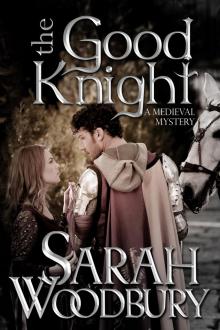 The Good Knight
The Good Knight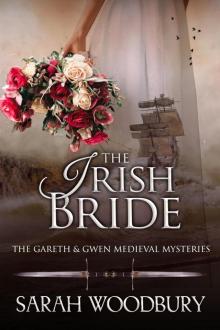 The Irish Bride
The Irish Bride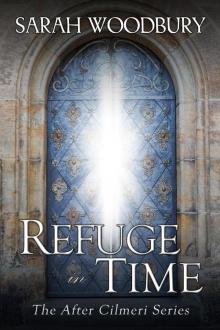 Refuge in Time
Refuge in Time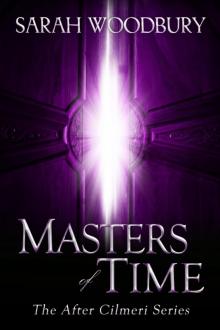 Masters of Time
Masters of Time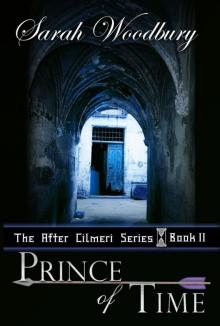 Prince of Time (Book Two in the After Cilmeri series)
Prince of Time (Book Two in the After Cilmeri series)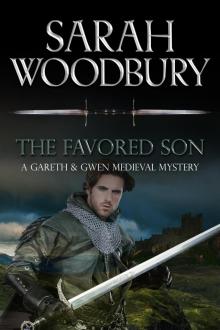 The Favored Son
The Favored Son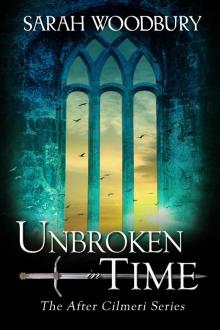 Unbroken in Time
Unbroken in Time![[The Lion of Wales 01.0] Cold My Heart Read online](http://i1.bookreadfree.com/i/03/22/the_lion_of_wales_01_0_cold_my_heart_preview.jpg) [The Lion of Wales 01.0] Cold My Heart
[The Lion of Wales 01.0] Cold My Heart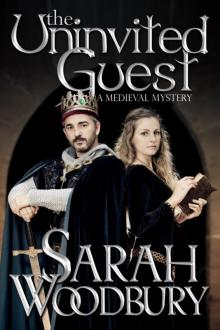 The Uninvited Guest
The Uninvited Guest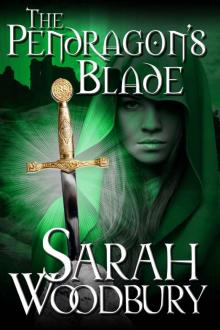 The Pendragon's Blade (The Last Pendragon Saga Book 2)
The Pendragon's Blade (The Last Pendragon Saga Book 2)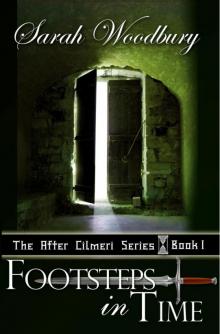 Footsteps in Time
Footsteps in Time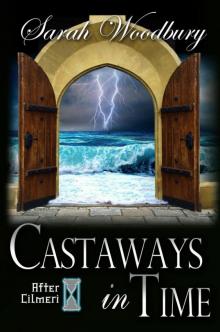 Castaways in Time (The After Cilmeri Series)
Castaways in Time (The After Cilmeri Series) Winds of Time
Winds of Time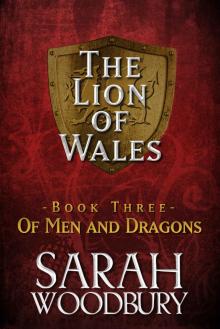 Of Men and Dragons (The Lion of Wales Book 3)
Of Men and Dragons (The Lion of Wales Book 3)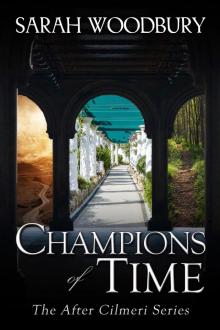 Champions of Time
Champions of Time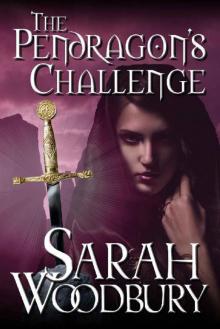 The Pendragon's Challenge (The Last Pendragon Saga Book 7)
The Pendragon's Challenge (The Last Pendragon Saga Book 7)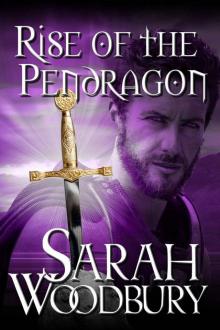 Rise of the Pendragon (The Last Pendragon Saga Book 6)
Rise of the Pendragon (The Last Pendragon Saga Book 6)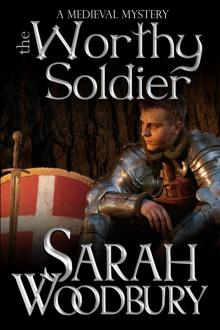 The Worthy Soldier
The Worthy Soldier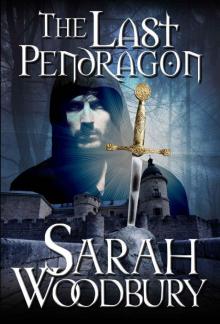 The Last Pendragon (The Last Pendragon Saga Book 1)
The Last Pendragon (The Last Pendragon Saga Book 1)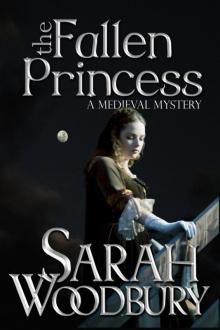 The Fallen Princess
The Fallen Princess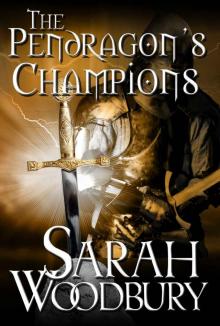 The Pendragon's Champions (The Last Pendragon Saga Book 5)
The Pendragon's Champions (The Last Pendragon Saga Book 5)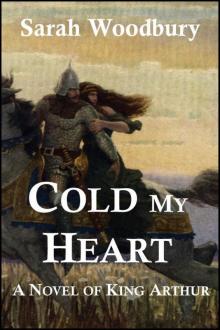 Cold My Heart: A Novel of King Arthur
Cold My Heart: A Novel of King Arthur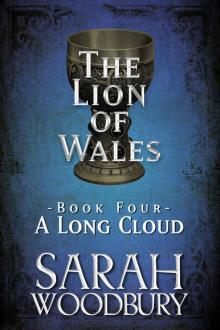 A Long Cloud (The Lion of Wales Book 4)
A Long Cloud (The Lion of Wales Book 4)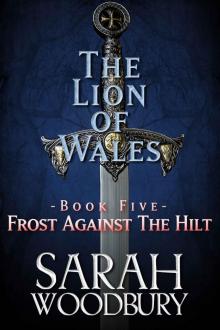 Frost Against the Hilt (The Lion of Wales Book 5)
Frost Against the Hilt (The Lion of Wales Book 5)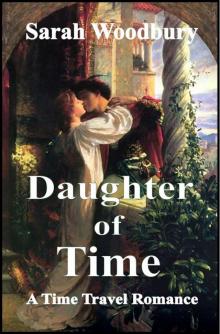 Daughter of Time: A Time Travel Romance
Daughter of Time: A Time Travel Romance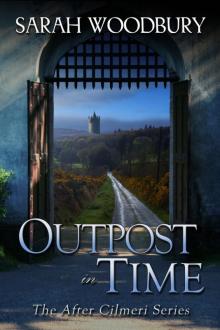 Outpost in Time
Outpost in Time Shades of Time kobo
Shades of Time kobo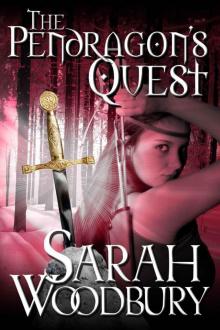 The Pendragon's Quest (The Last Pendragon Saga Book 4)
The Pendragon's Quest (The Last Pendragon Saga Book 4)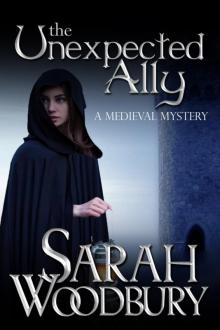 The Unexpected Ally
The Unexpected Ally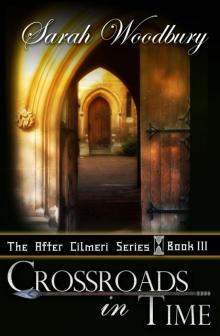 Crossroads in Time (The After Cilmeri Series)
Crossroads in Time (The After Cilmeri Series)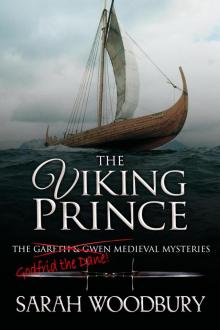 The Viking Prince
The Viking Prince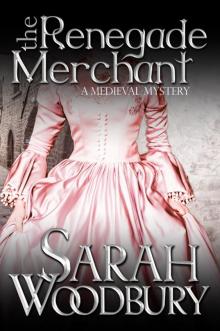 The Renegade Merchant
The Renegade Merchant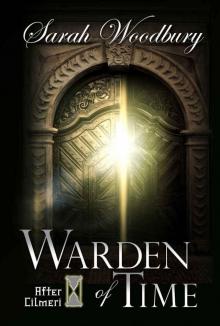 Warden of Time (The After Cilmeri Series Book 8)
Warden of Time (The After Cilmeri Series Book 8)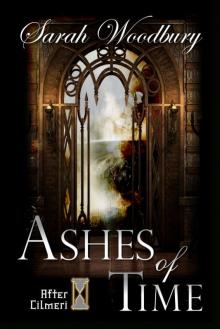 Ashes of Time (The After Cilmeri Series)
Ashes of Time (The After Cilmeri Series)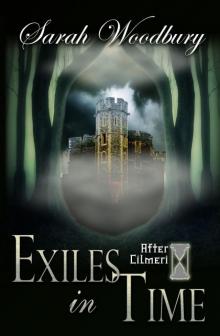 Exiles in Time (The After Cilmeri Series)
Exiles in Time (The After Cilmeri Series)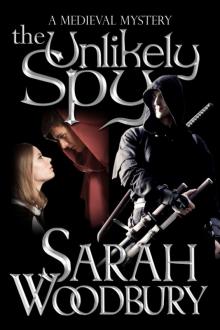 The Unlikely Spy
The Unlikely Spy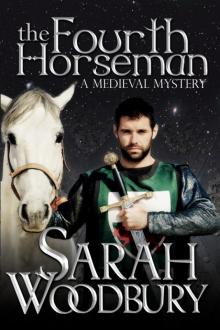 The Fourth Horseman
The Fourth Horseman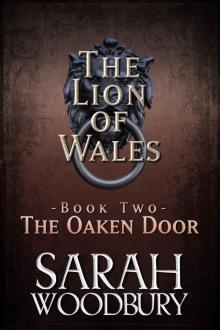 The Oaken Door (The Lion of Wales Book 2)
The Oaken Door (The Lion of Wales Book 2)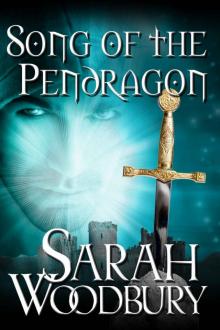 Song of the Pendragon (The Last Pendragon Saga Book 3)
Song of the Pendragon (The Last Pendragon Saga Book 3)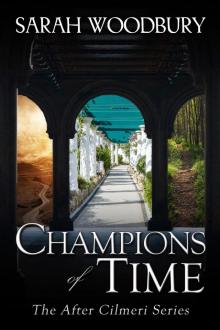 Champions of Time (The After Cilmeri Series, #13)
Champions of Time (The After Cilmeri Series, #13)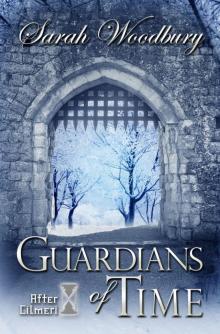 Guardians of Time
Guardians of Time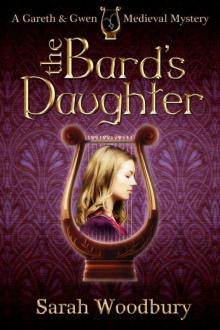 The Bard's Daughter (A Gareth and Gwen Medieval Mystery)
The Bard's Daughter (A Gareth and Gwen Medieval Mystery)